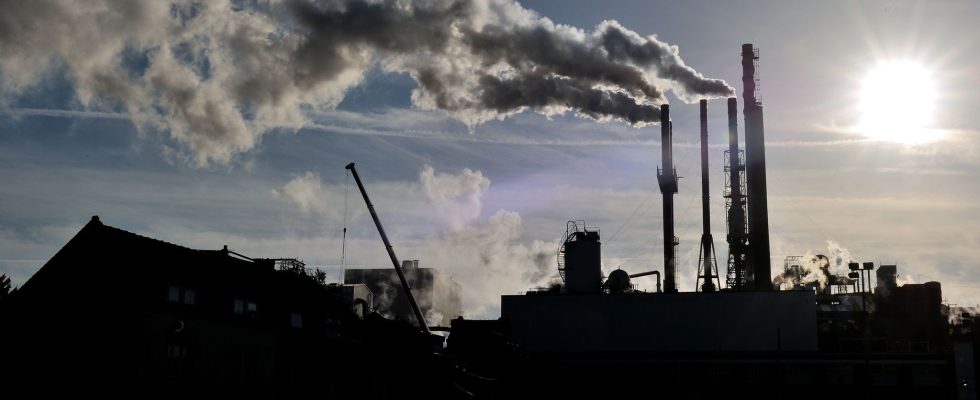Since the beginning of the decade, European industry has become fashionable again; we can only rejoice for the economy and employment. The pandemic and the necessary energy transition have highlighted our dependence on imports of critical materials and components. Unfortunately, this new momentum is compromised by a triple threat that has emerged in the last twelve months: rising energy prices in Europe, a carbon tax at EU borders and American protectionism.
Energy prices in Europe (electricity, gas), which literally exploded in the summer of 2022 before falling again, will undoubtedly remain at double what we experienced until 2019. Beyond economic reasons ( war in Ukraine, problems with the French nuclear fleet), the energy transition underway in Europe structurally calls for much higher electricity and gas needs than before. Prices at the same time are therefore higher and more unpredictable.
Second, an EU Border Carbon Adjustment Mechanism (MACF) will be introduced by October 2023 to compensate for the price gap between high-carbon non-European products and more virtuous but more expensive European products. Although laudable in principle, the implementation of this mechanism, similar to a tax on imports, paradoxically risks further increasing the cost of European products (initially, only basic materials such as steel, aluminum or fertilizers are concerned). Indeed, the application of the MACF is accompanied by the end of the free CO2 quotas hitherto granted to the most emitting European sites. This will lead to a lack of competitiveness for the companies concerned on non-European markets. To top it off, this new bulwark supposed to protect them in Europe promises to be quite easy to circumvent. How, for example, can you easily verify the reality of a “low carbon” label on Chinese steel, without total transparency that is difficult to establish, which would exempt it from import tax?
In cascade, certain subcontractors, in the mechanical sector for example, will in turn suffer from this increase in the cost of basic materials that they buy in large quantities. Those who cannot pass on the price increase to their customers will suffer; multinationals that can will be tempted to relocate their production to the gates of the EU, such as Turkey, to continue to benefit from low prices on raw materials and export processed products to the EU, not subject to the MACF. The protective mechanism will therefore have given birth to an incentive to relocate.
A shock likely to annihilate five years of reindustrialization
The impact will be very heavy on industrial employment in France: around 150,000 jobs in total are threatened. Three-quarters are due to the rise in energy prices, the remaining quarter due to the abolition of free quotas by the MACF. Compared to total industrial jobs in France, this number may seem modest (around 6%), but it represents a very heavy shock for two reasons. Firstly, the increase in industrial employment in recent years remains fragile, around 30,000 to 35,000 net creations per year. The shock we are talking about would therefore nullify four to five years of reindustrialization efforts. Secondly, the study shows that certain industrial sectors will be harder hit than others: chemicals, metallurgy, paper-cardboard will suffer declines of around 15 to 30%, a drain that could cause certain producers to disappear definitively. .
The Inflation Reduction Act (IRA) is the third groundswell. Signed into law by US President Joe Biden in August 2022, the IRA is an ambitious federal spending program ($369 billion), openly protectionist, and which aims to encourage the decarbonization of American industry and local energy production. decarbonized. The call for air is so massive that a good number of major European industrialists are seriously considering reviewing their future investments in favor of the United States and to the detriment of Europe, even if it means re-exporting to Europe afterwards! Carbon-free hydrogen, which manufacturers need to “green” their processes, could cost 2 dollars per kilo in the United States, once all the subsidies are taken into account, while it still costs 8 to 9 euros per kilo in Europe. Similarly, the IRA could lower the cost of an electric vehicle battery by at least 30%. Difficult for manufacturers to resist the sirens of such subsidies… Moreover, Volkswagen recently announced that it would favor its battery production sites in North America, to the detriment of a site in Eastern Europe. It is therefore very likely that the United States will create industrial jobs in the coming decade to the detriment of Europe.
Europe must react quickly
There is an urgent need to act and there are many fronts. First on the price of energy. Energy-intensive industries are demanding more visibility, in particular on what will replace the Arenh, this French system which guarantees privileged access to nuclear electricity until 2025 at an advantageous cost for the largest industrial consumers. Industrialists also expect more simplicity in the packages of European measures. All praise the immediate simplicity of the IRA and would dream of a European equivalent commensurate with the stakes. However, the EU’s response project, the NZIA, is still under discussion and will probably focus on a restrictive list of technologies.
Let us therefore hope that these very real threats will trigger a new impetus, able to develop the green industries that create jobs and wealth that France and Europe need.
